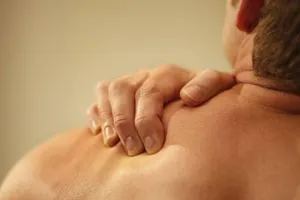Your rotator cuff is made up of the muscles and tendons in your shoulder. These muscles and tendons connect your upper arm bone with your shoulder blade. They also help hold the ball of your upper arm bone firmly in your shoulder socket. The combination results in the greatest range of motion of any joint in your body.
A rotator cuff injury includes any type of irritation or damage to your rotator cuff muscles (supraspinatus, infraspinatus, subscapularis, and teres minor) or tendons. Causes of a rotator cuff injury may include falling, lifting and repetitive arm activities — especially those done overhead, such as throwing a baseball or placing items on overhead shelves.
Provider Note: Rotator cuff injuries can vary from partial tears (some of the fibers of a tendon are torn) to full tears. Other diagnoses of the shoulder can include tendonitis, bursitis, ligament sprain, muscle strain, degenerative (can include arthritis and bone spurs). There are orthopedic tests and muscle tests that will be performed to make a diagnosis. If a rotator cuff tear is suspected an MRI will be advised to get the clear diagnosis and extent of the injury.
We get good results with most shoulder injuries, especially if it is a repetitive motion injury (baseball, tennis, swimming). We utilize FDM, along with stretching and rehabilitative exercises. Tissue restrictions are bound to build up from these activities and if they are not addressed, they can lead to decreased ROM, weakness in the muscle and further injury.
An orthopedic evaluation is a good place to start if a rotator cuff tear is suspected.

